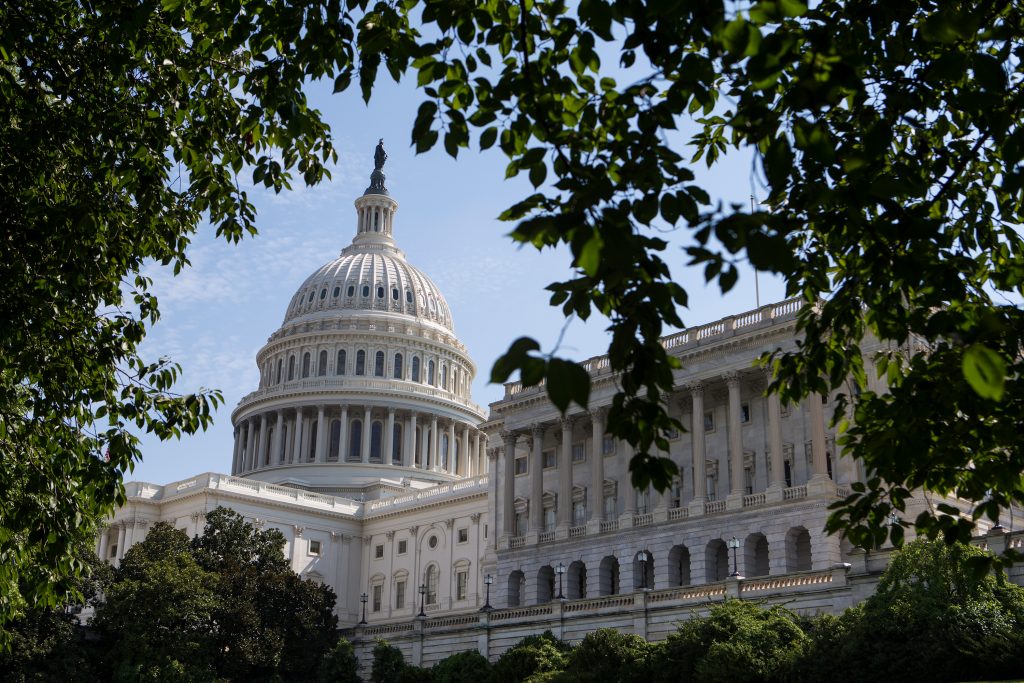Why another debt ceiling fight looms in Congress
Experts don’t expect much to happen until July, because Congress works on a deadline.

Legislation in Congress would claw back two years of funding for the public media system, along with money for foreign aid programs. Photo credit:Liam James Doyle, NPR
On Thursday, the U.S. Treasury Department informed Congress that it is taking “extraordinary measures” to prevent the federal government from surpassing its debt spending limit — and possibly defaulting on the country’s credit obligations.
Because the federal government runs budget deficits, we borrow money to pay our bills. But Congress is required to authorize borrowing, which they have historically authorized incrementally and always with a cap on the total amount allowed.
Budget deficits are not necessarily a bad thing. They allow governments to invest in society and the economy in ways that can enhance the lives of their citizens. Despite this, House Republicans have signaled they will refuse to raise the debt ceiling unless they receive budget spending cuts, even though the debt limit has nothing to do with future spending.
This is just the latest in a series of showdowns over the debt ceiling. So why does this keep happening and how will it affect every day Americans?
“There’s no logical reason to be linking the argument about raising the debt ceiling…with what future tax and spending policy should look like.” — Wendy Edelberg, economist
Listen: Why Congress should eliminate the debt ceiling.
Guests
Jacob Bogage is a business reporter for the Washington post. He says a lot of how the looming deadline fight will resolve rests with the Republican Speaker of the House Kevin McCarthy.
“I think a lot of that result rests on how Kevin McCarthy can wrangle his conference,” says Bogage. “Where’s the best place to have a fight over spending? Is it in future budget talks? Or is it over the debt ceiling, which is not new spending, it just simply allows the government to pay its bills.”
Wendy Edelberg is the director of The Hamilton Project and a senior fellow in Economic Studies at the Brookings Institution. She previously served as the Chief Economist at the Congressional Budget Office.
Edelberg says politicians should not link debt ceiling arguments with tax and spending policy because it only creates confusion.
“One thing that frustrates me,” says Edelberg, “is there’s no logical reason to be linking the argument about raising the debt ceiling – which is just, as you know, I can’t emphasize enough, it’s just a dumb argument – with what future tax and spending policy should look like.”
Trusted, accurate, up-to-date.
WDET strives to make our journalism accessible to everyone. As a public media institution, we maintain our journalistic integrity through independent support from readers like you. If you value WDET as your source of news, music and conversation, please make a gift today.
